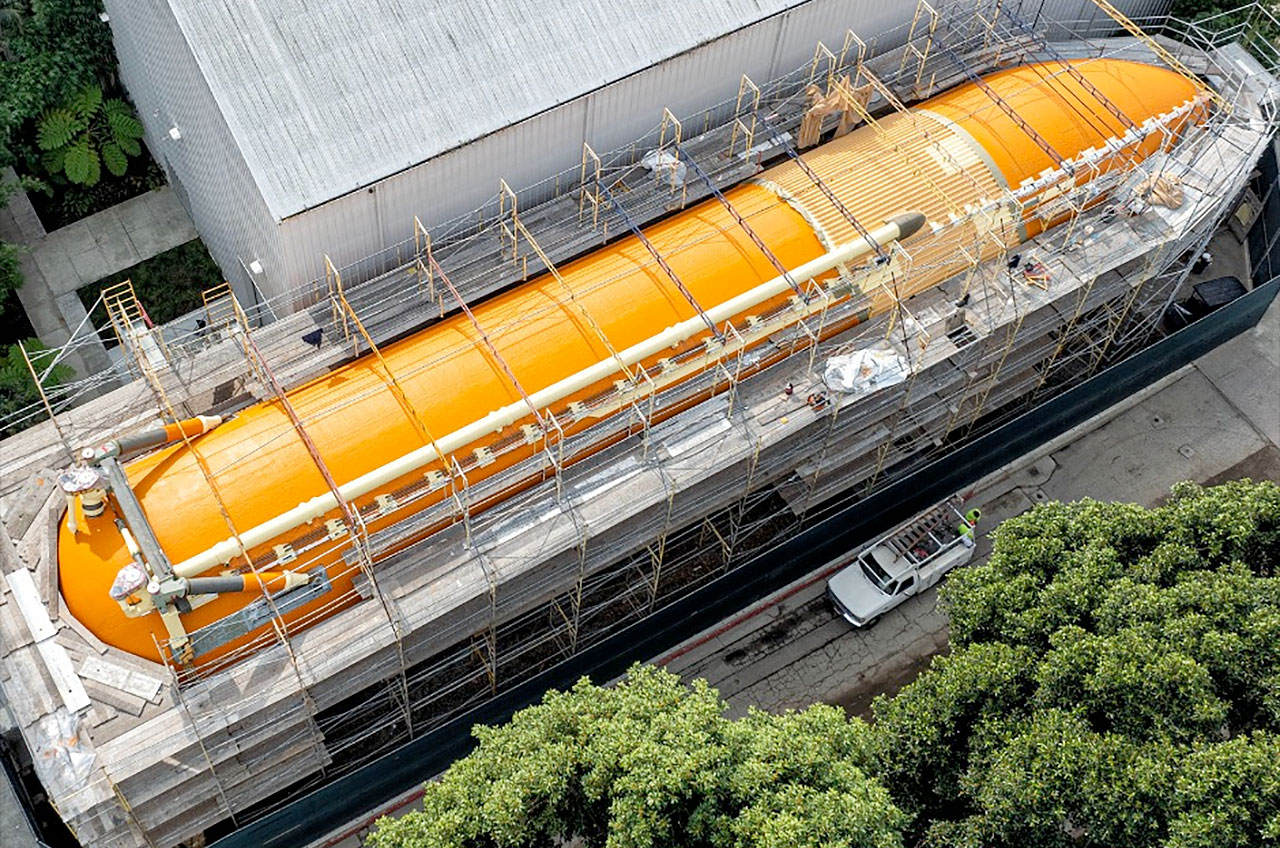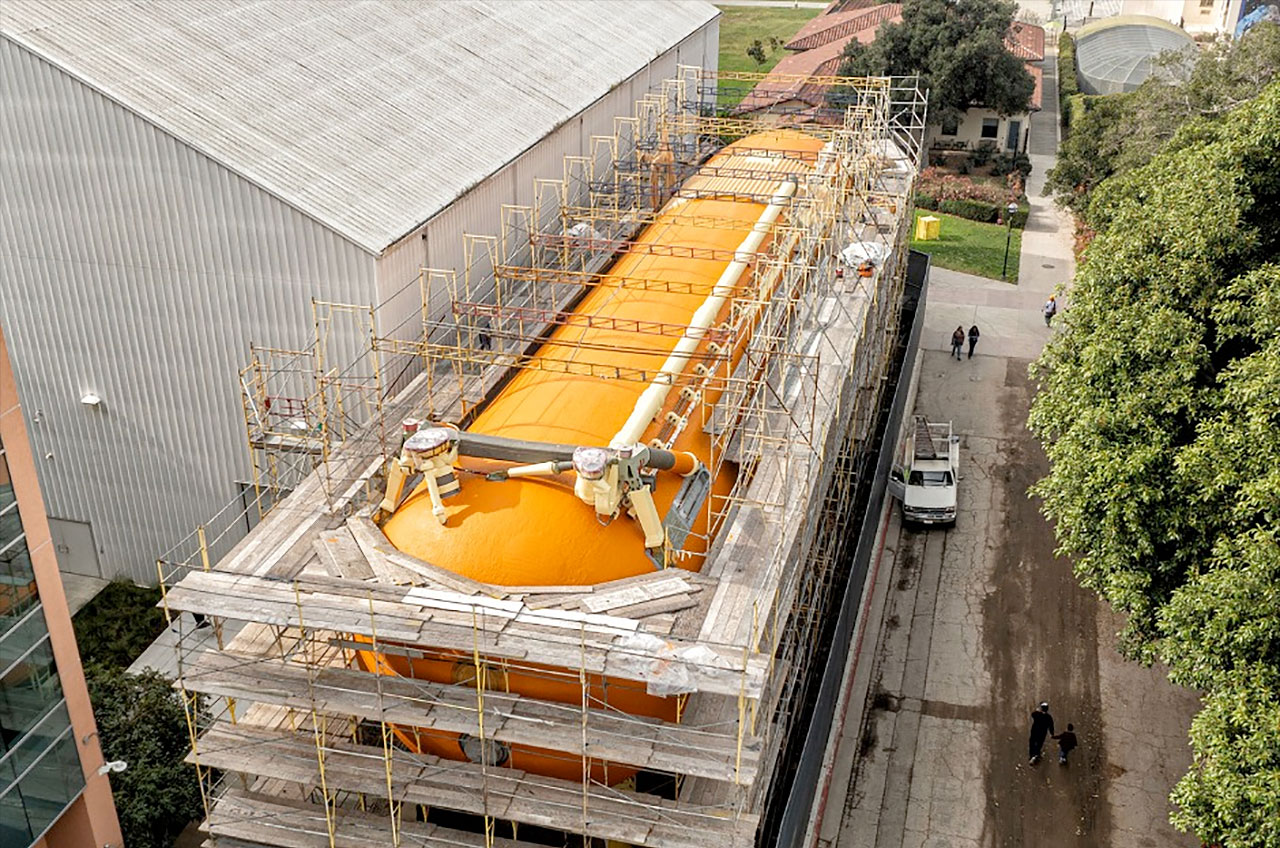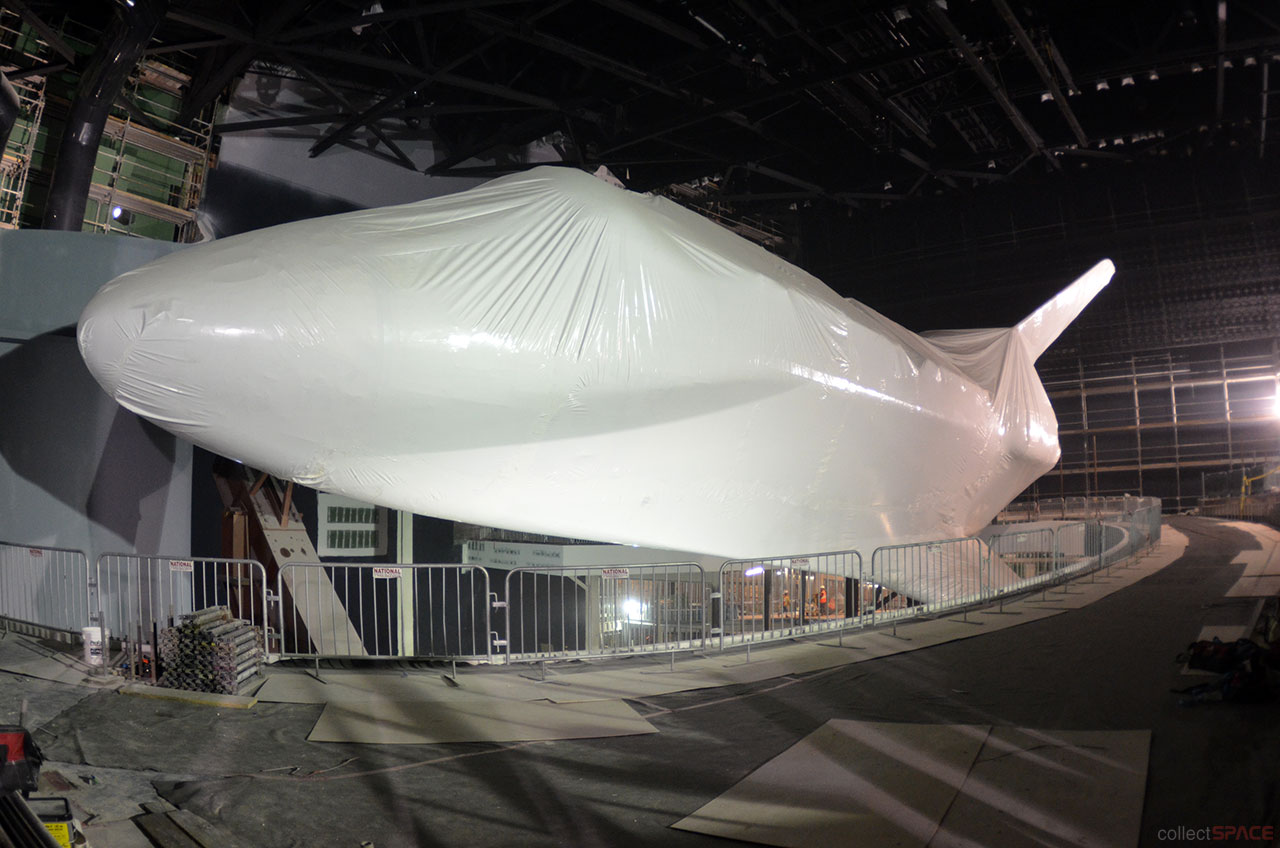
Just days after it was taken off exhibit and as its external tank is scheduled for its brief return to flight, NASA's retired space shuttle Endeavour is heading under wraps.
With the new year getting underway, the California Science Center in Los Angeles is expecting to complete its unprecedented "Go for Stack" campaign, ultimately taking Endeavour vertical to create the world's only exhibit of a fully authentic, 20-story-tall space shuttle as last seen on the launch pad. Endeavour, with its twin solid rocket boosters and external fuel tank, is set to become the star attraction of the science center's new Samuel Oschin Air and Space Center, which is slated to open in the next few years.
"On Tuesday [Jan. 2], we are starting the work to remove the west wall of the pavilion where Endeavour had been on display for the past 11 years," said Jeffrey Rudolph, president and chief executive officer of the California Science Center, in an interview with collectSPACE.com. "The wall has to come off to move Endeavour out. It is the same way we moved her into the pavilion back in 2012."
Related: 2nd rocket booster lifted into place for space shuttle Endeavour LA exhibit

Although the wall was designed to be removed, work must first be done to detach exhibit items and disconnect electrical connections. External Tank-94 (ET-94), NASA's last remaining space shuttle fuel tank built for flight, must also be moved from its temporary storage site on the south lawn of Exposition Park to make room for Endeavour to be rolled out.
"We are also starting to prepare ET-94 for its move, which involves taking down the fencing and scaffolding that currently surrounds it," said Rudolph.
The science center announced on Tuesday that is targeting Jan. 10 to begin the tank's move. The largest component of the space shuttle stack, the 154-foot-long (47 meters) orange tank will be loaded onto a self-propelled modular transporter for its relatively short trip from beside the California Science Center to the work site for the new air and space center.
The 65,000-pound (29,500 kilograms) tank will then be hoisted by crane above the partially erected walls of the museum and then lowered between the exhibit's two solid rocket boosters, which were similarly installed in December. Unlike the boosters, though, the tank's lift will be conducted overnight, with first motion slated for sometime after 10 p.m. PST on Jan. 11 (12 a.m. EST or 0500 GMT Jan. 12), pending acceptable weather conditions and other safety concerns.

"Once we go vertical, it is the point of no return. We have to finish it at that point," Dennis Jenkins, the project manager for the California Science Center's space shuttle Endeavour display, told collectSPACE. "We'll carefully monitor the weather. We won't lift until we're ready. And once we lift, we are there for the duration."
Assuming everything goes as planned, the move and lift of Endeavour will follow a similar schedule of a multi-day transport and overnight lift in the coming weeks.
First, though, the winged orbiter needs to be shrink wrapped.
"We decided in the last minute — literally, at the last minute — to shrink wrap Endeavour," said Jenkins. "We're worried about her getting dirty. Our experience with the solid rocket boosters is that after a couple of days, they were filthy, which is to be expected on a construction site."
"We decided that Endeavour would not appreciate that," he said.

Unlike the metal walls of the boosters, which can be easily washed, cleaning the orbiter's heat shield tiles and thermal blankets is a more complicated ordeal. For the same reason, NASA covered space shuttle Atlantis in plastic after moving it into its display building at the Kennedy Space Center Visitor Complex in Florida.
"Unfortunately, it will impact the visuals of the stacking because you won't see the orbiter the way a lot of people probably expect, but it will be much better for the vehicle. Endeavour will be a white blob as it gets lifted," said Jenkins.
The shrink wrap, which will be added to Endeavour before it rolls out of its former display pavilion, will stay on the vehicle until after construction of the Oschin Air and Space Center is complete and work needs to get underway to configure the space shuttle for its public debut.
Follow collectSPACE.com on Facebook and on Twitter at @collectSPACE. Copyright 2024 collectSPACE.com. All rights reserved.







